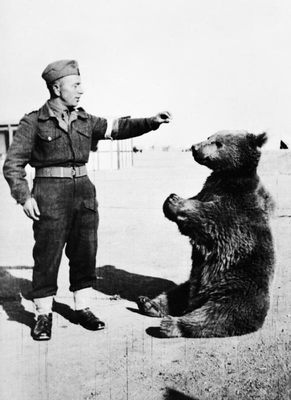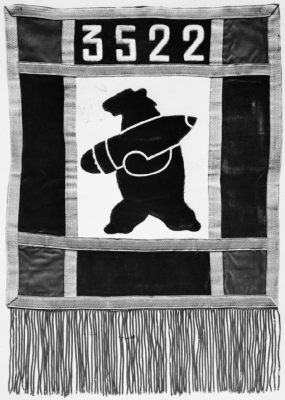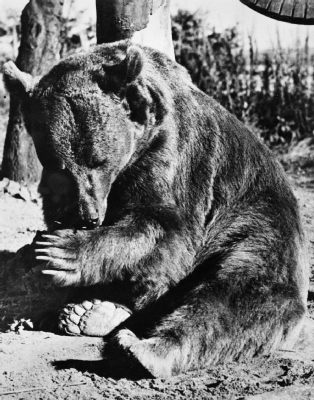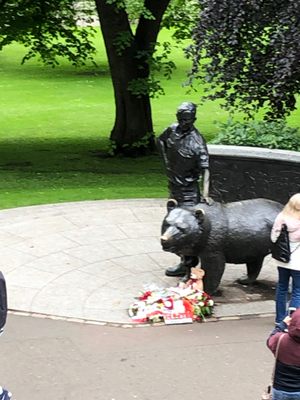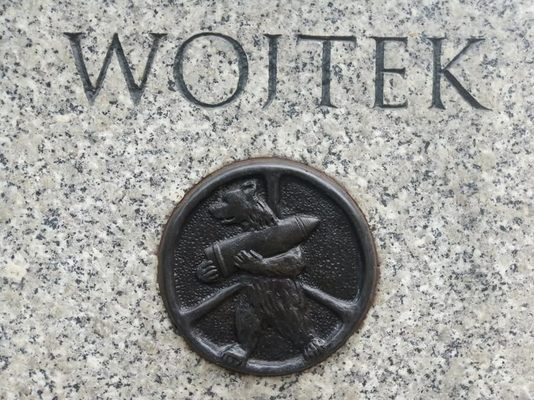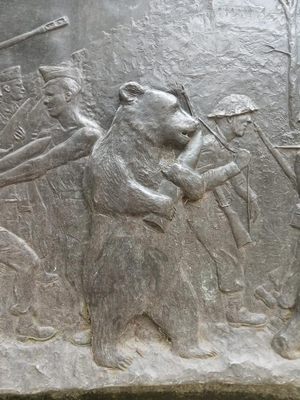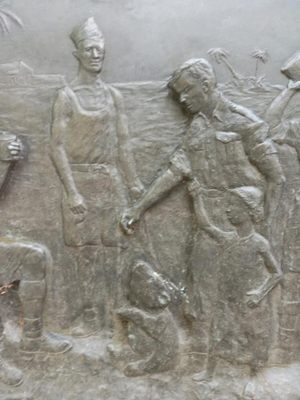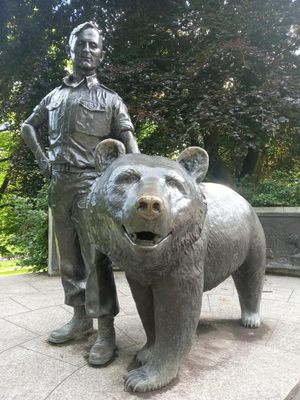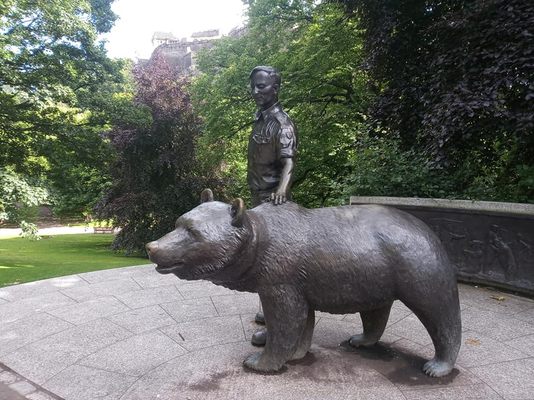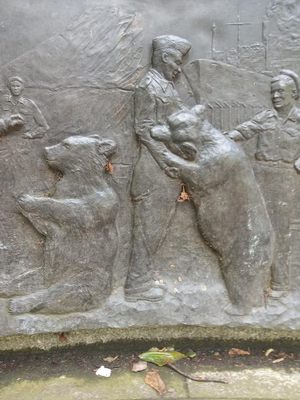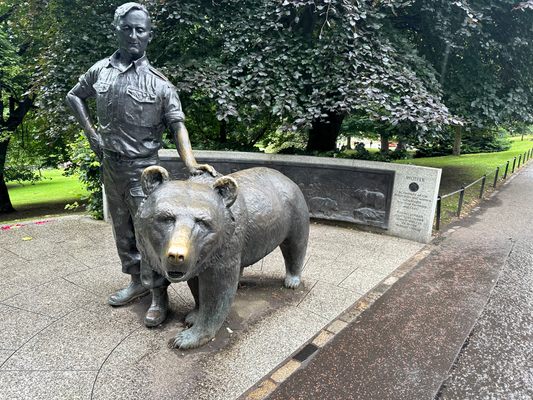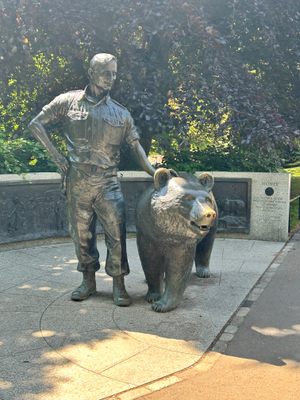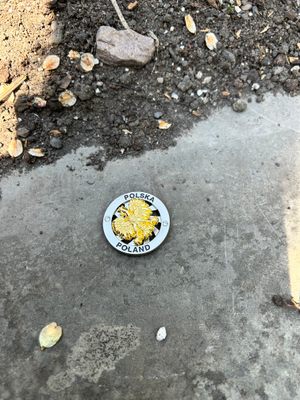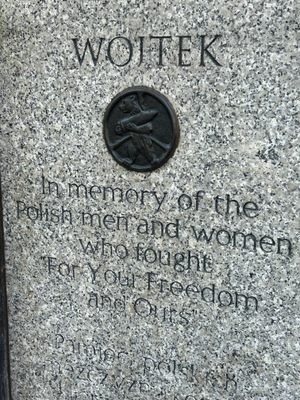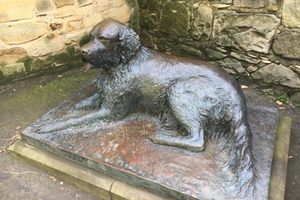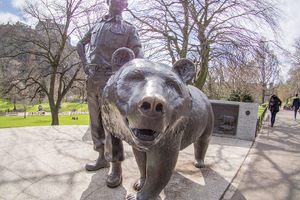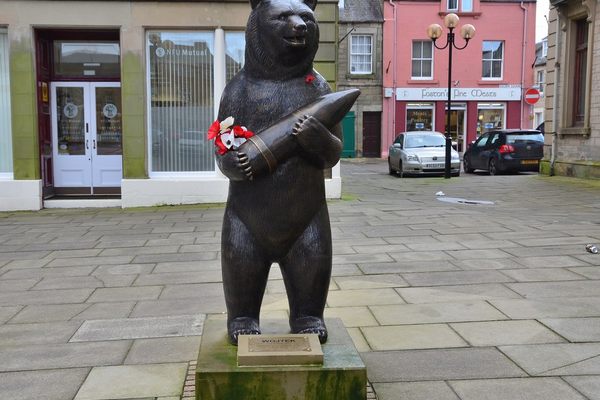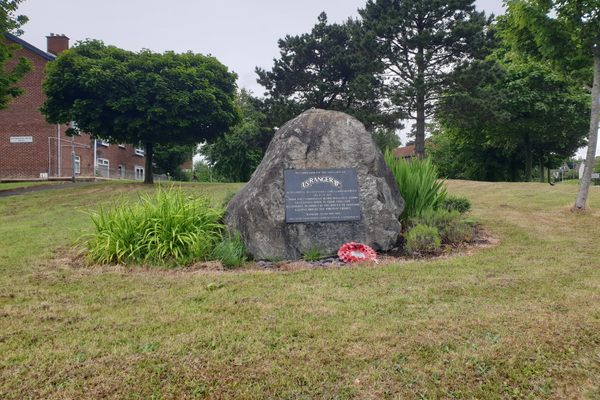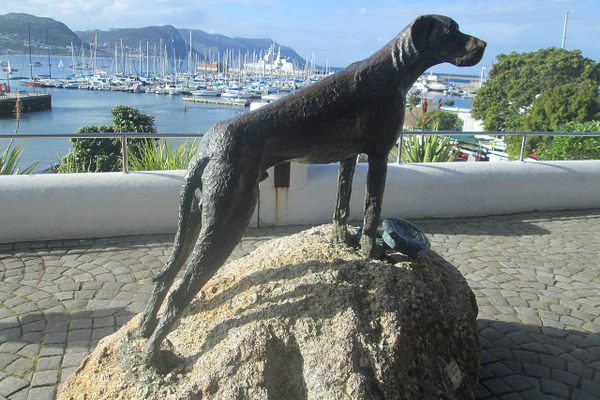About
Wojtek the bear's unlikely journey to Scotland—and into the annals of military history—began in Iran in 1943, when a group of Polish soldiers adopted an orphaned brown bear cub.
The soldiers were members of the Polish 2nd Corps, a military unit consisting of Polish political prisoners released from Soviet gulags by Stalin after the Nazi invasion of the USSR. As they left their places of internment and moved west to join the fight against the Axis, the bear cub they adopted quickly became a popular and important boost to morale. By the time the 2nd Corps reached Egypt and prepared to transfer to the Italian war zone, the now-fully-grown bear had learned to salute and carry supplies and enjoyed drinking beer, eating cigarettes, wrestling with the soldiers, and swimming whenever he had the chance.
Going into active combat, however, presented a problem, as soldiers were forbidden from bringing pets into theaters of operation (and by this point the bear had, by all accounts, thoroughly imprinted on the soldiers who had raised him). Thus, the bear was enlisted into the 22nd Artillery Transport Company of the 2nd Corps, and accordingly given an official number, the rank of private, and the name Wojtek—a common Polish name meaning “joyful warrior.”
Private Wojtek served for the remainder of the war, most notably during the Battle of Monte Cassino, in which he helped to move crates of ammunition—with two hands, while standing upright, because he thought he was people. The Battle of Monte Cassino opened the road to Rome for the Allies. Wojtek was so popular among his fellow soldiers that a graphic of a bear carrying an artillery shell became the official emblem of the 22nd Company.
After the war ended, Wojtek’s company was transferred to southeastern Scotland. Having experienced Soviet repression first-hand, most of the soldiers refused to return to Poland after the Iron Curtain fell, and chose instead to remain in Scotland in exile. Once the 22nd Company was demobilized in 1947, Wojtek was moved to the Edinburgh Zoo. His old Polish brothers-in-arms visited him regularly, as did the scores of new admirers he gained during the remainder of his life. He died in 1963, at the age of 22.
Unveiled on November 7, 2015, the bronze statue in Princes Street Gardens in Edinburgh commemorates not only the much-beloved bear, but also the Polish soldiers who bravely shared the same harrowing journey and ultimately found refuge in Scotland. Commissioned by the Wojtek Memorial Trust, the project likewise pays tribute to the resultant close ties between Scotland and Poland.
Related Tags
Flavors of Scotland: Beyond the Haggis
Smoked seafood, single malt whisky, and warm hospitality.
Book NowCommunity Contributors
Added By
Published
November 24, 2015
Sources
- http://www.bbc.com/news/uk-scotland-edinburgh-east-fife-34748795
- http://www.edinburghnews.scotsman.com/news/polish-veteran-unveils-soldier-bear-wojtek-statue-1-3940806
- http://www.thenews.pl/1/10/Artykul/227980,Statue-of-Polish-soldier-bear-unveiled-in-Edinburgh
- https://www.warhistoryonline.com/war-articles/edinburgh-soldier-bear-statue-honor-wwiis-wojtek-bear-unveiled-princes-street-gardens.html
- https://en.wikipedia.org/wiki/Wojtek_(bear)


